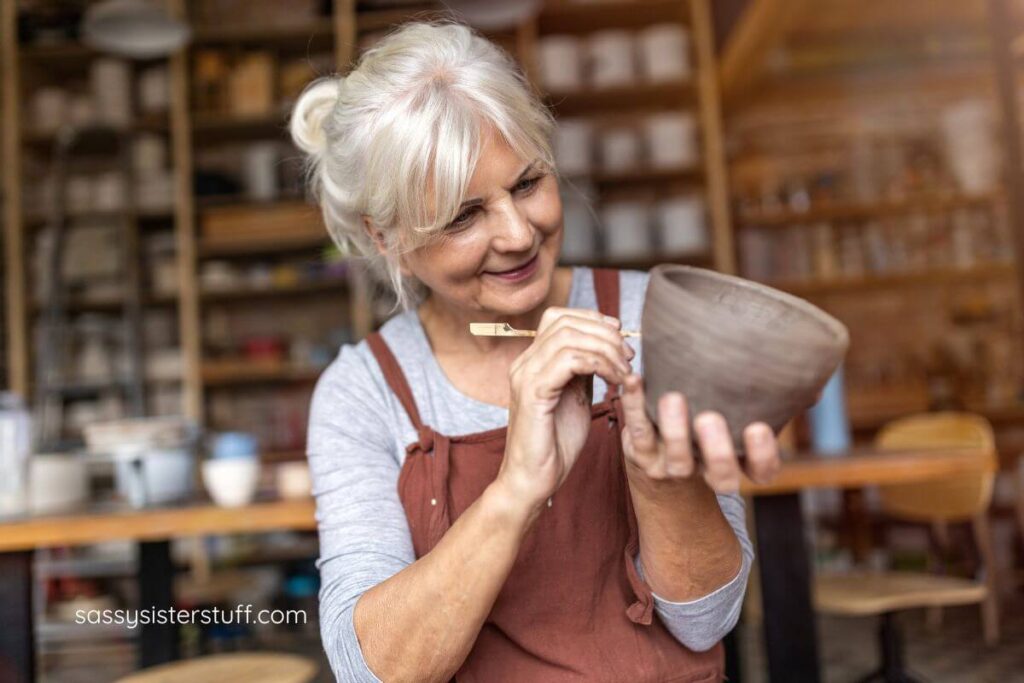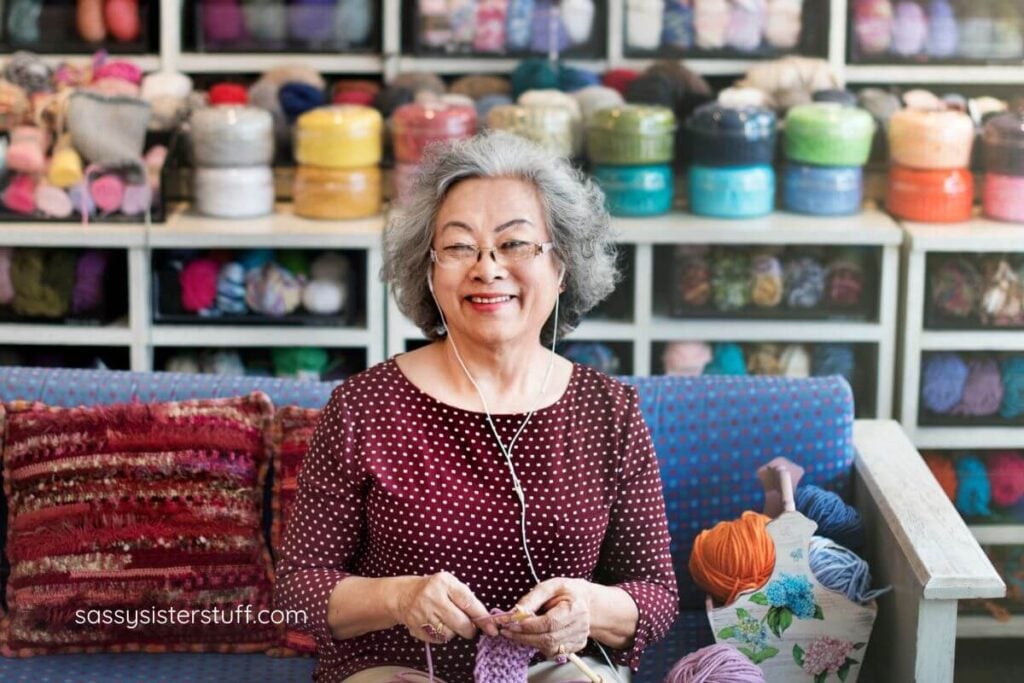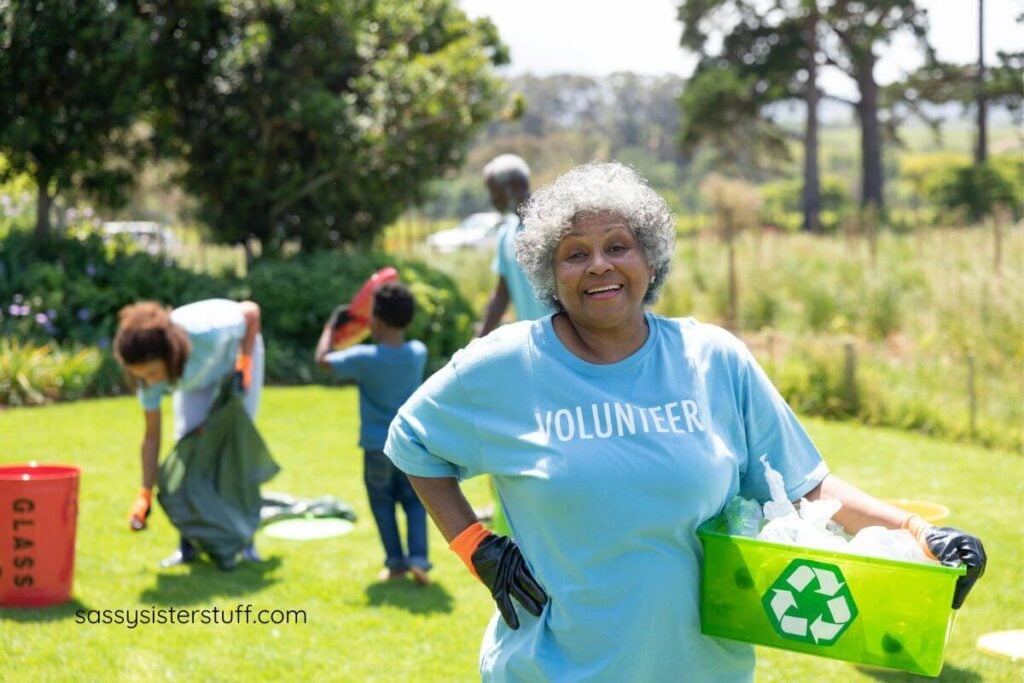Hobbies That Will Make You Feel More Productive in Retirement
Retirement opens doors to countless possibilities, yet many women find themselves searching for meaningful ways to spend their newfound time. The key lies in choosing activities that combine personal satisfaction with a sense of accomplishment. These hobbies offer more than entertainment—they provide purpose, skill development, and tangible results that bring genuine fulfillment.
Finding the right productive hobby can transform how you experience your days. Whether you’ve always been hands-on or you prefer quieter pursuits, certain activities naturally generate that satisfying feeling of achievement. Below, you’re going to discover hobbies that will make you feel more productive in retirement. You can start any of these hobbies regardless of your previous experience or current skill level.

“Retirement is a time to experience a fulfilling life derived from many enjoyable and rewarding activities.”
— Ernie J. Zelinski
Hobbies that will Make You Feel More Productive in Retirement
Retirement is a shift, not a stop. While the regular rhythm of your career provided a built-in sense of accomplishment and utility, that feeling doesn’t have to vanish when you leave the office. The key to a fulfilling post-career life lies in redefining productivity—moving it away from a paycheck and toward personal growth and meaningful contribution. Hobbies are your most powerful tool for this transition.
When you engage with a genuine passion, whether it’s mastering a musical instrument or volunteering your time, you are tapping into a fresh source of fulfillment and purpose. This isn’t just “killing time;” it’s an active investment in your well-being. By setting small, achievable goals within your chosen activity, you create a new structure for your week, giving you clear milestones to work toward.
This focused engagement naturally crowds out boredom, builds self-esteem, and delivers that satisfying feeling of having used your time well. It allows you to transform free time into productive leisure, providing a strong foundation for a vibrant and engaged retirement.
Now let’s talk about some of the best hobbies that will make you feel more productive during these years!

Gardening: Growing More Than Plants
Gardening stands out as one of the most rewarding and productive hobbies you can embrace. Each season brings new challenges and victories, from nurturing seedlings to harvesting vegetables. And even when it’s too cold to grow, you can start planning your steps for the upcoming spring.
Vegetable Gardening
Vegetable gardening particularly enhances that productive feeling since you create food for your table. Starting with easy-to-grow varieties like tomatoes, lettuce, or herbs gives you quick wins. Container gardening works perfectly if you have limited space or mobility concerns. Even a small herb garden on a windowsill can provide fresh ingredients for cooking while giving you daily tasks to accomplish.
Flower Gardening
Flower gardening offers its own rewards through beautiful blooms that brighten your home and neighborhood. Creating themed gardens or color schemes challenges your creativity while producing stunning visual results. Many gardeners find keeping a garden journal helps them track what works best, creating a valuable reference for future seasons.

Crafting Beautiful and Functional Items
Retirement offers a golden opportunity to shift from the abstract work of your career to hobbies that yield tangible results you can see, touch, and use. Engaging your hands and mind in creating something beautiful and functional is a powerful antidote to feeling unproductive, giving you a daily dose of accomplishment. The immediate, physical nature of crafts like quilting, knitting, and pottery builds confidence and pride—each finished piece is a monument to your skill and patience. These hobbies are a fantastic way to turn free time into a flow state, creating usable goods, meaningful gifts, and a profound sense of purpose that will enrich your retired life.
Quilting
Quilting combines creativity with practical skills, producing heirloom-quality pieces that serve real purposes. Modern quilting techniques make the process more accessible than ever, with pre-cut fabric bundles and simplified patterns available for beginners. Each completed quilt represents hours of thoughtful work and provides warmth for family members or charitable donations.
The misconception that quilting requires perfect hand-stitching is a debunked sewing myth—machine quilting produces equally beautiful and durable results. Starting with smaller projects like table runners or wall hangings builds confidence before you tackle larger pieces. Many quilters appreciate how this hobby allows for both solitary work and community involvement through quilting circles or clubs.
Knitting or Crocheting
Knitting and crocheting offer portable productivity that travels anywhere. These skills create useful items like scarves, blankets, and sweaters while providing meditative repetitive motion that many find soothing. Online tutorials make learning new stitches and techniques simple, and you can progress at your own pace.
Pottery
Pottery and ceramics engage both hands and mind in creating functional art. Taking classes at community centers or art studios provides access to equipment and expert guidance. The transformation of clay into beautiful bowls, mugs, or decorative pieces feels almost magical. Each firing brings anticipation and the satisfaction of creating something both beautiful and useful.
PIN TO PINTEREST FOR LATER… YOU WILL BE GLAD YOU DID!
Culinary Adventures in Your Kitchen
Cooking and baking allow for daily productivity with immediate, delicious results. Experimenting with new recipes challenges your skills while providing meals for yourself and others. Baking bread particularly satisfies since the entire process—from mixing ingredients to pulling golden loaves from the oven—engages multiple senses.
Mastering international cuisines opens entire worlds of flavors and techniques. Focusing on one cuisine at a time allows deep exploration of ingredients, methods, and cultural context. Italian pasta-making, French pastry techniques, or Asian stir-fry methods each offer rich learning opportunities with delicious outcomes.
“I see retirement as just another reinvention, another chance to do new things, and be a new version of myself.”
— Walt Mossberg
Writing and Documentation Projects
Family history research combines detective work with storytelling, creating lasting legacies for future generations. Genealogy websites and digital records make tracing family lines more accessible than ever. Organizing photos and documents into family albums or digital archives provides structure to years of collected materials.
Additionally, writing memoirs or family stories transforms life experiences into valuable documents. These projects don’t require professional writing skills—authenticity matters more than perfection. Starting with short stories about specific events or people makes the task less overwhelming. Many writers find voice recording software helpful for capturing thoughts that they can later transcribe and edit.

Learning Through Teaching and Volunteering
Volunteer tutoring or mentoring combines skill-sharing with community service. Many organizations need volunteers to help with literacy programs, computer skills, or job interview preparation. Teaching others reinforces your own knowledge while making meaningful contributions to your community. The flexibility of volunteer schedules allows you to commit time that works with your lifestyle.
Starting small workshops or classes in your areas of expertise creates structured productivity. Whether you’re teaching cooking techniques, craft skills, or professional knowledge, sharing what you know benefits both teacher and student. Community centers, libraries, and senior centers often welcome volunteer instructors for various programs.
“Don’t simply retire from something; have something to retire to.”
— Harry Emerson Fosdick
Building and Restoring With Purpose
Woodworking projects range from simple crafts to furniture restoration, offering satisfaction through building useful items. Starting with basic projects like birdhouses or garden planters builds confidence with tools and techniques. Many community workshops offer classes and equipment access for those without a dedicated workspace at home.
Furniture restoration breathes new life into family heirlooms or flea market finds. Learning refinishing techniques, upholstery repair, or hardware replacement creates valuable skills while preserving pieces with history. Each restored item tells a story while providing functional furniture for your home or gifts for family members.
Home improvement projects tackle practical needs while building valuable skills. Painting rooms, organizing closets, or creating storage solutions provides immediate satisfaction through improved living spaces. Working at your own pace allows you to complete projects thoroughly without pressure from professional timelines.

Final Thoughts: Make Every Day Count
Productive hobbies enrich retirement by providing purpose, skill development, and tangible results. The key lies in choosing activities that match your interests, physical abilities, and available time. Starting small allows you to build confidence and skills gradually while discovering which activities bring you the most satisfaction.
The most important factor is choosing hobbies that make you feel accomplished and engaged with life around you. Consider trying several different activities before committing to any single hobby. Many women find their perfect productive pursuit through experimentation and keeping an open mind about new possibilities. Your ideal hobby might surprise you by being something you never considered before.
You Will Love these Related Articles
- The Ultimate Guide of Hobbies for Women Over 50
- 101 Creative Hobbies to Promote a Balanced Life
- How I Found My Passion and Purpose in Retirement
Love to All! ~ Susan








